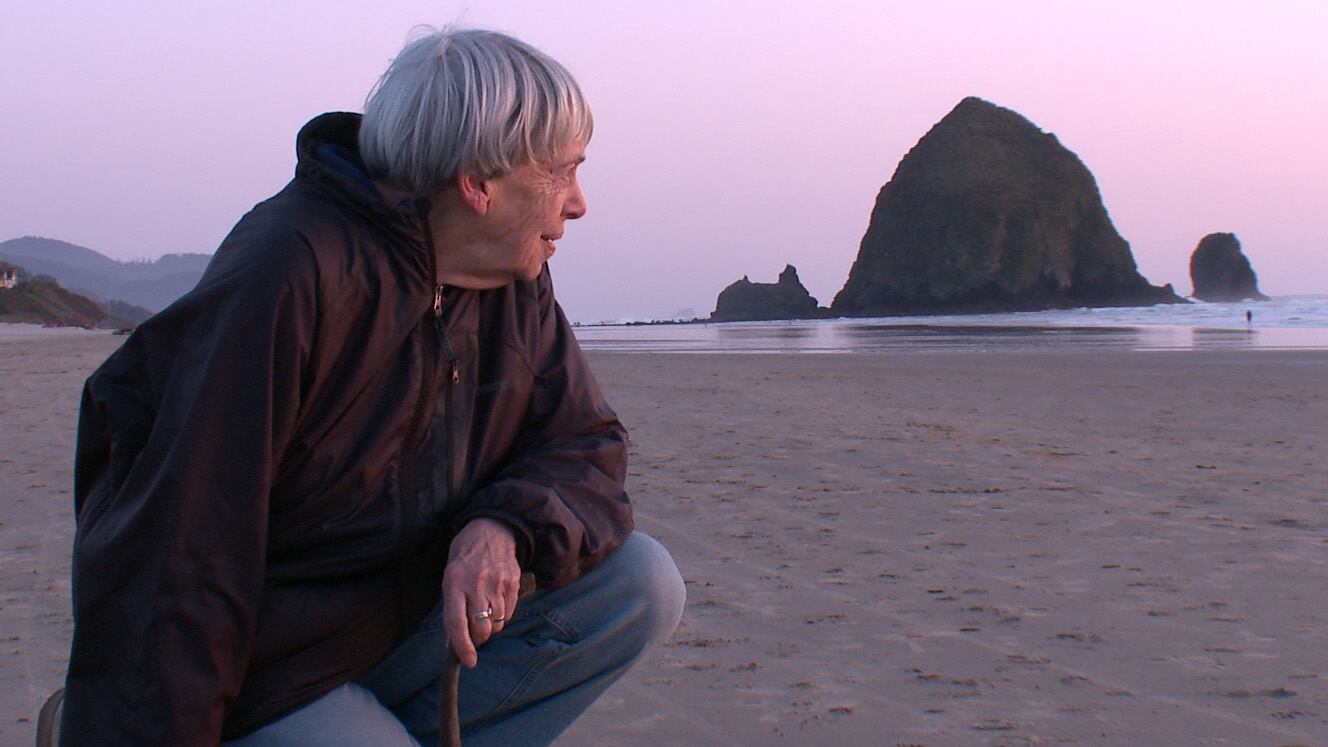When Ursula K. Le Guin died January 2018 in her Portland home at age 88, the world didn't just lose a revolutionary science-fiction author decorated with literary awards during a career spanning five decades. We lost an imagination that opened the eyes of generations of readers to new civilizations, new rules, new ways of being. The documentary Worlds of Ursula K. Le Guin, which will have its U.S. premiere in Portland, is a celebration of her work from the point of view of readers, fellow writers and Le Guin herself.
Director Arwen Curry began working on the project a decade ago, but this documentary isn't the portrait of an artist we're accustomed to. The childhood retrospective doesn't take up more than a few minutes. Neither do any portrayals of her adult life, influences, or even her artistic process. This movie instead focuses on the realms she created and the way those imagined places changed the scope of literature.
One of those worlds took shape in A Wizard of Earthsea, which is set in a complex, mythical archipelago that Le Guin describes in a voice-over as we see footage of her strolling the coastline in Cannon Beach. In between Le Guin's illustrative narratives, we see clips from interviews with authors like David Mitchell (Cloud Atlas), Margaret Atwood (The Handmaid's Tale) and Neil Gaiman (American Gods, Coraline) speaking about her influence.
Gaiman recalls the era of macho realist fiction during which Le Guin made her name, and how books like Harry Potter "could never have existed before Earthsea." To these writers, Le Guin is a hero who legitimized their science-fiction creations and brought critical acclaim to imaginative fiction. And despite all this praise, Le Guin is associated with humility and the constant push to be better and think bigger.
"I didn't mean to be a writer. I just wrote," says the author at one point. "A lot of people think fantasy is escapism and has nothing to do with the real world, but I don't believe that. Magic exists in every society, in one way or another."
The enduring nature of that magic is displayed in real time during a scene at a Bay Area high school, where a class is reading "The Ones Who Walk Away From Omelas." The students, unaware of Le Guin's legacy, speak to the camera about the dilemma presented in the short story: characters living in a utopia where prosperity is dependent on the suffering of a single child. We get to see how it challenges the students' logic, and what it makes them question as their imaginations are propelled into motion.
Worlds of Ursula K. Le Guin is unquestionably a love letter to creativity. But it's also a call to action for authors to fight for the dignity of literature in the face of modern capitalism. Honoring Le Guin is not complete without moments from her poetically scathing speech at the 2014 National Book Awards, in which she boldly called upon fellow writers to stand with her to "save literature from going down the river" (aka Amazon.com). Le Guin didn't want to escape to a more interesting planet in her mind, she wanted to help people envision a better way of doing planet Earth.
SEE IT: Worlds of Ursula K. Le Guin screens at NW Film Center's Whitsell Auditorium, 1219 SW Park Ave., nwfilm.org. 7:30 pm Friday-Saturday, 4:30 pm Sunday, Sept. 14-16. $5-$15.

